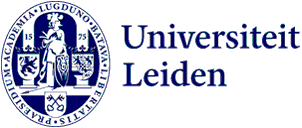
Fifteen lecturers gain Senior Teaching Qualification
Fifteen passionate lecturers earned their Senior Teaching Qualification (SKO) on Monday 22 January. Rector Magnificus Hester Bijl congratulated them in the Academy Building. Four of these lecturers talk about what motivated them to take the SKO and how it has benefitted them.

Jennifer Doekhie, Assistant Professor of Criminology
‘I started out with a small idea of bringing criminal justice and criminology students together with people in detention − groups that do not usually have much to do with each other, but do so in the students’ later careers. The idea grew, was implemented and developed into a full learning trajectory. The SKO certificate is the recognition and reward for the path I am following in educational innovation.
‘Over the next three years, I am going to focus on further reducing the gap between the university and society. This will include bringing students closer to the group they study in the lecture hall. I hope this will inspire as many lecturers as possible.’

Yasco Horsman, Assistant Professor of Film and Literary Studies
‘The SKO gave me the chance to make all the work that I have done in educational innovation and curriculum development more visible. I also wanted to get talking to colleagues from other disciplines. It took me out of my comfort zone and got me thinking.
‘I want to spend the next three years focusing on developing an interdisciplinary minor in law and literature and a new Master’s in Digital Media and Society. Both will be taught in The Hague. That is something I enjoy and find important because I believe that all students can benefit from humanities teaching, which is often more reflective by nature. And by teaching in The Hague, I hope to work with students from different disciplinary backgrounds.’

Francien Dechesne, Associate Professor of Ethics and Digital Technology
‘Paradoxically, lack of time was my main reason for doing it. I didn’t have time to develop the interdisciplinary Artificial Intelligence and Society minor, when I kept on getting confirmation that it was completely in line with the visions, interests and values of the university and society. So I really wanted to make it happen and the SKO gave me the chance to take the time to do so.
‘Participating brought me in contact with colleagues who, like me, are sometimes fighting a lonely battle at different faculties and on different fronts: the battle for recognition of the fact that educational innovation, interdisciplinary teaching and organising teaching takes time and attention.’

Toon Kerkhoff, Assistant Professor of Public Administration
‘Having taught at the university for more than ten years, I felt the need to brainstorm with people who really care about education and who were also in more or less the same phase of their teaching careers. I was looking for new insights and ideas for improving the teaching – both for my own courses and for the Bachelor’s in Public Administration, which I coordinate.
‘I want to focus in the coming years on improving the efficiency and effectiveness of feedback and assessment. We know that a lot of assessment is not at all suited to properly retaining information. And also that a great deal of feedback doesn’t reach students at all. But there are, as I have learned on this programme, all sorts of ways to do that.’
The following lecturers received their Senior Teaching Qualification on 22 January:
Faculty of Law
- Annemarie Drahmann
- Joep Steegmans
- Max van Lent
- Jennifer Doekhi
- Francien Dechesne
Faculty of Governance and Global Affairs
- Joris Larik (also works for the Europa Institute of the Faculty of Law)
- Dimiter Toshkov
- Toon Kerkhoff
Faculty of Humanities
- Astrid Van Weyenberg
- Maria Boletsi
- Siavash Rafiee Rad
- Yasco Horsman
Faculty of Science
- Alfons Laarman
- Charlene Kalle
- Paul Logman

Senior Teaching Qualification
The SKO is a qualification for lecturers who play a leading role in the development and innovation of education at the curriculum level (i.e. beyond their own discipline). To achieve this qualification, lecturers must put together a portfolio that shows that they meet four final learning objectives:
- Conduct within the academic teaching environment;
- Creating and elaborating a didactic programme with a view to the context of a curriculum;
- Preparing and providing teaching;
- Impact on education within one or more degree programmes that extends beyond one’s own teaching programme.
In addition, an SKO candidate must be a lecturer who already has a Basic Teaching Qualification (BKO), has taught at the university level for at least five years in various subjects and years, and has applied a variety of educational methods in doing so. In addition, the lecturer must show that they have developed initiatives and made contributions that have an educational impact within one or more degree programmes transcending their own course or discipline. You can read more about obtaining an SKO here.
